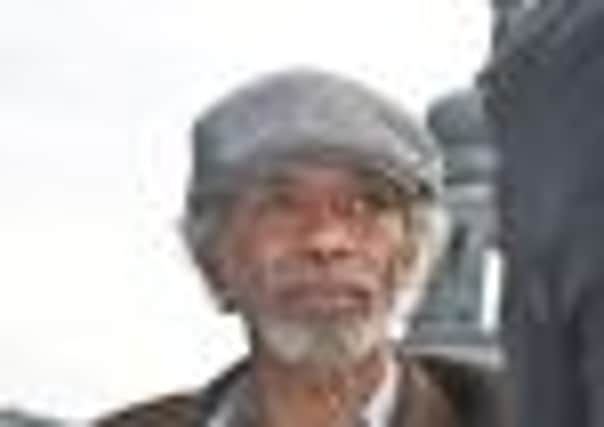Book review: The Last Holiday


When he died last May American musician and writer Gil Scott-Heron was lauded for the groundbreaking work he’d done in pushing the boundaries of music, literature and black political consciousness. The likes of Chuck D, Usher and Kanye West all sang his praises as a visionary, and later this year Scott-Heron is to receive a Lifetime Achievement Grammy.
In an honest publisher’s note at the back of this posthumous memoir, Canongate’s Jamie Byng admits to challenges when it came to publishing it. It was written and re-written in bits over a ten-year period, and it feels a little scattershot in places, but what emerges from it is a picture of a self-deprecating, thoughtful and gracious man, someone very modest about his own talents and the influence he had on those that came after him.
Advertisement
Hide AdAdvertisement
Hide AdBut despite being thoroughly engaging, The Last Holiday is a slightly unsatisfying read. According to Byng, Scott-Heron envisaged writing a whole book that would be a factual account of his time supporting Stevie Wonder on the 1980 Hotter Than July tour, a massive arena undertaking that doubled as a fund-raising and consciousness-raising tour in support of the campaign to make Dr Martin Luther King’s birthday a public holiday in America.
In fact, the scaled down section of the book dealing with that tour is the least compelling of the writing here, suffering like many a tour diary from the necessary repetitiveness of events.
Much more interesting is the more conventional memoir stuff about Scott-Heron’s upbringing in Jackson, Tennessee by his maternal grandmother and then latterly by his own mother. The grounding his inspirational family gave him is brought to life vividly, as is the terrible racism and segregation that was still rife at the time.
From there, Scott-Heron moved with his mother to New York, by now a teenager with a clear gift for music (which he rather skirts over) and a much bigger passion for writing. It’s interesting, given that Scott- Heron is mostly known as a musician, that his early years are dominated by words, and he admits to preferring sitting down to write a short story or poem rather than jamming with friends.
It was those literary skills that landed him a full scholarship in a prestigious and expensive private school, from where he enrolled in Lincoln University. But Scott-Heron, ever the wilful artist, dropped out of university to concentrate on writing his first novel, The Vulture, which was successfully published when he was barely out of short pants. A second novel and a book of poetry followed, then a spoken word album, and thus began a slow drift in his focus from one artform to the other.
Then, when he found himself with a handful of chart hits on his hands, the decision was effectively made for him. He quit a job teaching creative writing to concentrate on his music, leading him to a highly respected career, one that saw him rubbing shoulders with everyone from Bob Marley to Miles Davis to Michael Jackson.
Not that Scott-Heron dwells on such meetings much. The tone of The Last Holiday is humble, charming and intelligent throughout, and the author clearly has no time for the trappings of modern celebrity, preferring to focus on the craft of what he does, and the social and political context of his work. Which is presumably why he spends most time on the Stevie Wonder tour.
Advertisement
Hide AdAdvertisement
Hide AdThe importance of the cause is what drives his account of events, as well as his admiration for the way Wonder went about getting his message across. All of which is undoubtedly worthy, but it rather lacks the charisma with which he recounts his own upbringing.
What’s also interesting is what’s not included in this memoir. There is barely a mention of his wife, his other romantic relationships and his several children. There’s virtually no mention of drugs, despite Scott-Heron having been busted for cocaine more than once. And there’s no mention of him latterly being HIV-positive either.
In fact, there is virtually nothing after 1980, except for a few short passages on the death of his mother, his own stroke, and his family relationships. These passages are moving and piercingly honest, which makes you wish there was more like it in this patchwork book. Perhaps the piecemeal nature of The Last Holiday is inevitable, given the circumstances of its publication. Despite that, it portrays a man as gifted as he was generous of spirit, and a sad loss for our times.
The Last Holiday
by Gil Scott-Heron
Canongate, 223pp, £20